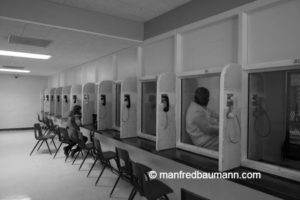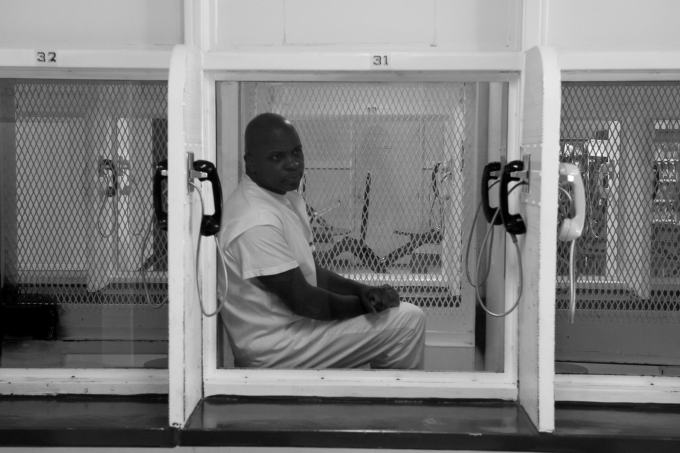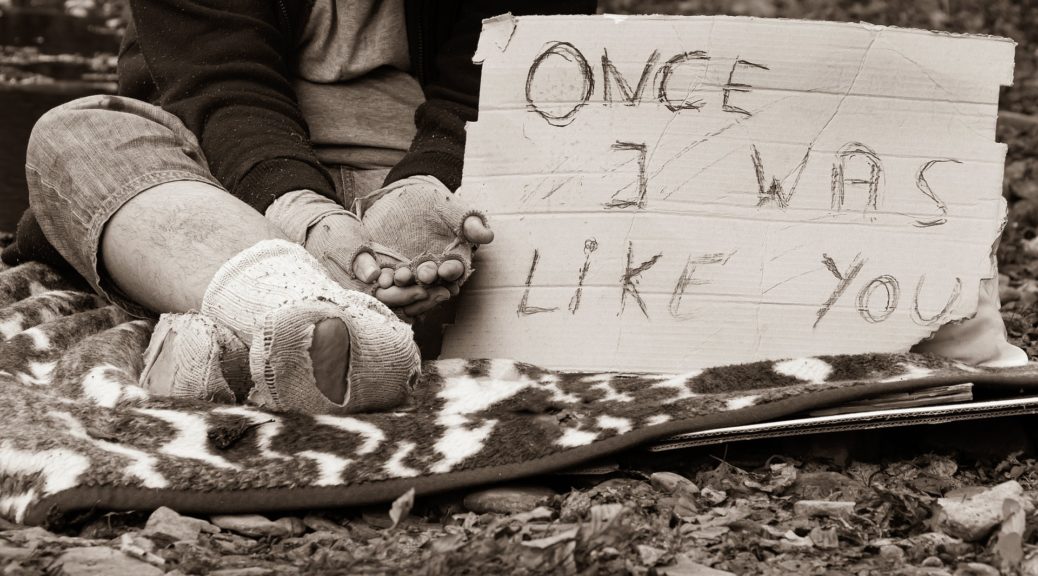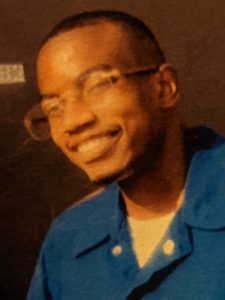My grandmother died a day after my quick conviction.
“She saw you on TV after you were sentenced to death and she died. You killed her by breaking her heart.”
I got hate mail from my own flesh and blood after my conviction. – Charles Mamou
Charles Mamou’s family was divided, according to Mamou, half quickly disowning him and wishing he were dead.
But, what did they know, really? They knew the same thing I did when I first looked up articles on Charles Mamou, a new writer for WITS, what the prosecution wanted them to know – what the jury, the defense, and the media heard. I read various versions of a brutal, lone murderer who sexually assaulted a girl before killing her in an abandoned house. It wasn’t a wonder he got hate mail. I’d learned to look past the headlines, things not always as they seem.
After reading the transcripts, I got a slightly clearer picture. As the prosecution’s story goes, Charles Mamou went on a killing rampage sparked by a drug deal gone wrong, drove off with the victim, sexually assaulted her, and murdered her in a very hard to find backyard in Houston – a city he didn’t live in. All the other individuals involved in the drug deal, all residents of Houston, slept after the initial drug deal and knew nothing, a couple of them testifying for the state…
So – I looked even closer. If it were a card game, there would be money on the table, not a life, and some would say the deck was ‘stacked’. It turns out, the state had information that not only could have supported Charles Mamou’s claims of innocence, but the information could have also led to finding out what really took place that night. Evidence that existed all along and more recent interviews reveal a few things. The state had a list of phone calls that were made that night. All of the callers in those records, the individuals involved in the drug deal, from the ‘cooker’, to the driver, to the introducer, were not sleeping that night according to their phones. Not only that, recent interviews put them all in the parking lot of Howard Scott’s apartment that night, along with Charles Mamou – who was supposed to be off on a lone sexual assault and murder. If Charles Mamou was in the parking lot along with the car he was driving – so was the victim. Which is what Charles Mamou has always asserted – that he fled the drug deal gone wrong and drove back to Howard Scott’s apartment complex.
In the absence of shared information, the existing phone records, witnesses were not called to testify, and those who were called testified they were sleeping – even though the state knew their phones were in use. Does an attorney have an obligation to bring it to the attention of the court or his witness when they are not telling the truth and the attorney is aware of it?
Phone calls that should have been traced, never were – no one will ever know where the calls were placed from. They could have been dialed from the backyard where the body was found. They could have been placed from anywhere in Texas. The calls would have certainly helped determine what happened that night. The callers never had to answer questions about where they were when they placed the calls. The owner of the phone line they called – never had to explain who was calling and what they said. The man whose phone was receiving the calls testified for the state, saying he was asleep and his phone was not ringing. Regardless of records indicating that was not true, the state’s witness was never corrected by the prosecutor. No one questioned why his phone was ringing until 3:43 a.m. the night the victim was murdered and why one phone call went out at 3:59 a.m. requesting a cab – yet the state had information these calls took place.
One of the callers to the home did the same, testifying for the state and saying he went home to bed that night and didn’t use his phone. The witness and driver in the drug deal did not have to explain why his cell phone dialed Howard Scott’s apartment at 2:37 a.m. or where he was at when the call was made. Rather, he testified he had went to bed.
The other callers on the record never even had to step foot in a courtroom. They were never called by either side. But, all the callers were up and about that night, not sleeping, and witnesses have since said they saw all the callers in one parking lot that night – Howard Scott’s parking lot.
It isn’t surprising the jury came back with a guilty verdict, no more surprising than it would be in a poker game with no aces in the cards dealt to the other players, but rather held in the dealer’s hand. Charles Mamou certainly looked the part, he was a drug dealer. Just in case though, they hung on to one more card. The sexual assault. While fighting for the death penalty, the prosecution called him ‘vicious’, ‘ruthless’, and ‘cold-blooded’. The jury was told he ‘devastated and destroyed’, that he ‘marches her to the back, and he makes her commit oral sodomy, makes her suck his penis. Imagine that, ladies and gentleman’.
While saying those words to the jury the prosecution knew not only about the phone records that could have been used to defend Mamou, they also knew something else. There was a rape kit collected from the body along with trace evidence, and that kit was collected by the medical examiner who did not make one note of it in his autopsy report. He also did not breathe one word of it in his testimony. The prosecutor’s office not only knew about the collection of the evidence, they requested that it be processed and they had received the results. The results indicated there was ‘no semen found’. In addition to that, trace evidence was collected that Mamou never knew about. For two decades – he never knew. Neither did the jury, or his family, or the victim’s family.
There is no nice way to say it. The state had information that not only could have supported Charles Mamou’s claims of innocence, but the information could have also led to finding out what happened that night. Evidence and interviews that have since taken place tell us a few things. All of the callers in those records were not sleeping that night. Recent interviews put them all in the parking lot of Howard Scott’s apartment, along with Charles Mamou – who was supposed to be off on a lone sexual assault and murder. Involved parties, according to the phone records, were not called to testify, and those who did testified they were sleeping – regardless of what the state knew.
Charles Mamou absorbed the anger for the loss of his grandmother. He had no other choice. Since his conviction, he has been living in a 9 x 6 cell in solitary confinement. No one sees his tears. No one can measure his depression. People have moved on with their lives, his children have been raised, his grandchildren don’t know him. As it stands now, he will be executed. His appeals are exhausted, he is waiting on a date, and if his parents are still alive when it comes, they will watch their son be belted down to a table as poison gets pumped into his veins and he takes his final breath. Is that the justice we should be shooting for?
Many anti-death penalty activists find their stance not because they are necessarily opposed to the death penalty. They base their stance on the knowledge the deck sometimes gets stacked. Not every prosecutor is as interested in finding out exactly what happened as they are in securing a win. If anyone wanted to know what happened to the victim twenty years ago, those phone calls would have been traced. The individuals making the calls would have been interviewed, their stories documented, statements taken and compared. It defies logic to even try and argue differently, to suggest those individuals not be interviewed and those calls not be traced. A girl was murdered – every stone should have been turned over to find out what happened. Instead – nothing. There is not one recorded interview with two of those callers that night, both of whom are said to have been in the parking lot, and one of who’s name is recorded as being the caller for a cab from Howard Scott’s apartment at 3:59 a.m. Yet – not one interview with him or the other individual calling the apartment and seen in the parking lot that night. As a matter of fact, Howard Scott’s first interview with police that was performed on the first day he was transported to HPD – is not in any file. It does not exist. I was told, “Not everything makes it into the file.”
What could have been discovered if, in 1999, this case had been investigated and the phone records and physical evidence shared? Where were the phone calls made from? What would the callers have said about what they were doing that night had they been asked? What would the recipient of the phone calls have said if he had been confronted with the question, rather than allowed to say – ‘I was sleeping’?
The window of opportunity on what could have been determined is shut. The Harris County prosecutor’s office did that, not Charles Mamou. The deck was stacked against Mamou, the victim’s family, Mamou’s family, the jury, and anyone who has ever read the story. Everybody loses. The prosecution may have felt not sharing the information they had would secure a ‘win’ for their office, but how is that winning? You can’t win when you cheat, it’s a façade, a farce. One person does not get to decide what part of the puzzle we can use. To argue a case in a court of law, what people look towards for truth, justice, equality and fairness, while keeping information to yourself, and not only doing that but also exploiting the lack of knowledge and arguing scenarios such as witnesses sleeping and sexual assault – that is not a win.
There is also a facebook page dedicated to sharing Charles Mamou’s troubling case.

All Photos, courtesy of ©manfredbaumann.com
TO CONTACT CHARLES MAMOU:
Charles Mamou #999333
Polunsky Unit 12-CD-53
3872 South FM 350
Livingston, TX 77351
You can also reach him through jpay.com.
SIGN HIS PETITION – LEARN ABOUT HIS CASE. Charles Mamou is a long time WITS writer. He is part of our writing family and his case has been studied and shared here for a couple years. Please sign a petition requesting that his case be truly investigated – for the first time. If you learn enough about his case, you will likely agree, there was not much done in the way of investigation. What we have been able to learn, supports that. Please sign.
![]()



